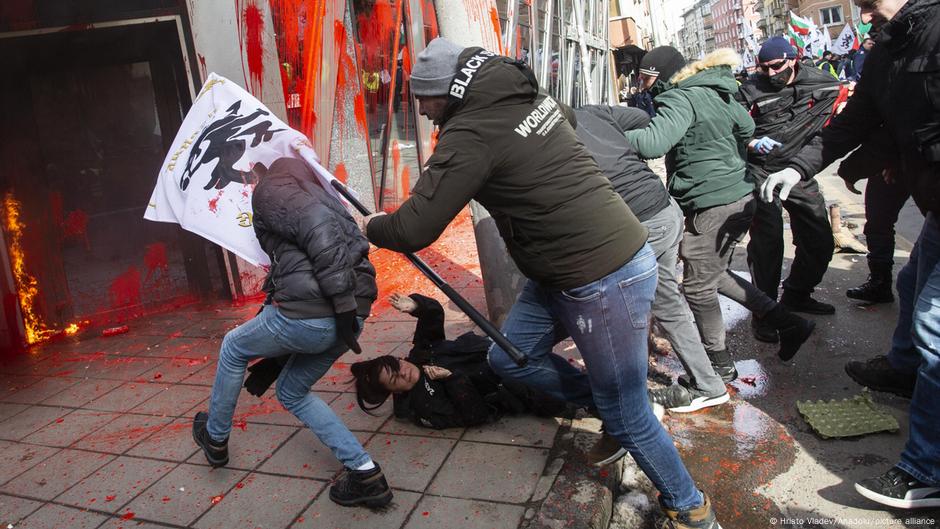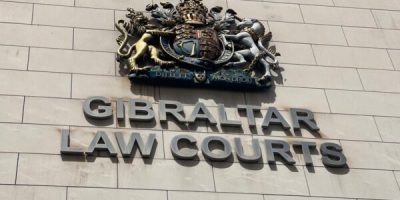Clashes broke out between police and nationalist protesters in Bulgaria’s capital, Sofia, on Saturday, with the thousands of protesters demanding that the government scrap plans to introduce the euro as official currency.
The demonstration began in front of the central bank building in Sofia, where protesters burned effigies of European Central Bank President Christine Lagarde and other officials.
Some protesters then began throwing paint, Molotov cocktails and firecrackers at the local office of the European Commission, the European Union’s executive arm. A door was eventually set on fire.
Several officers injured, multiple people arrested
Around 10 police officers sustained minor injuries and about six people were detained, a senior police official told reporters.
The protesters, mostly supporters of Bulgaria’s ultra-nationalist Revival party, called for the government’s to step down and chanted “No to the Euro” and “Yes to the Bulgarian lev,” the country’s currency.
The Revival party has accused government officials of “fabricating data” to support the introduction of the single currency. They call for more public debate and a referendum to decide on entry to the 20-member eurozone.
Many economists believe Bulgaria would attract more foreign investment if it adopted the euro and secured credit rating upgrades. Others say the EU’s poorest country is not yet ready to adopt the EU’s single currency.
Euro adoption a priority for new government
Bulgaria joined the EU in 2007. However, its entry to the bloc did not signal the end of political instability. The country has seen seven governments over the past four years.
The current government, which was approved last month after October’s snap election, has reaffirmed the country’s commitment to joining the eurozone next year.
Prime Minister Rosen Zhelyazkov has said the 2025 state budget will set a deficit of about 3%, which will pave the way for the euro on January 1, 2026.
However, the country still needs to meet an extended inflation target before its euro bid can be examined.
Bulgarians are divided over the euro’s introduction, with many worrying that it will cause prices to skyrocket, as ithappened in Croatia in 2023.
The government, backed by other pro-European parties in parliament, has reaffirmed the importance of adoption as another step toward European integration.
Edited by: Darko Janjevic









